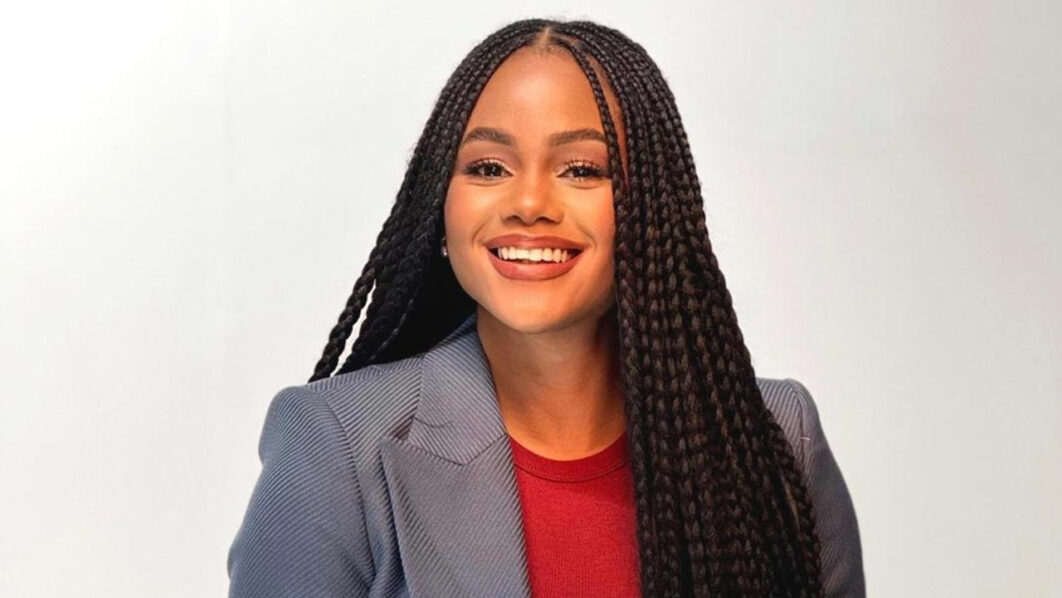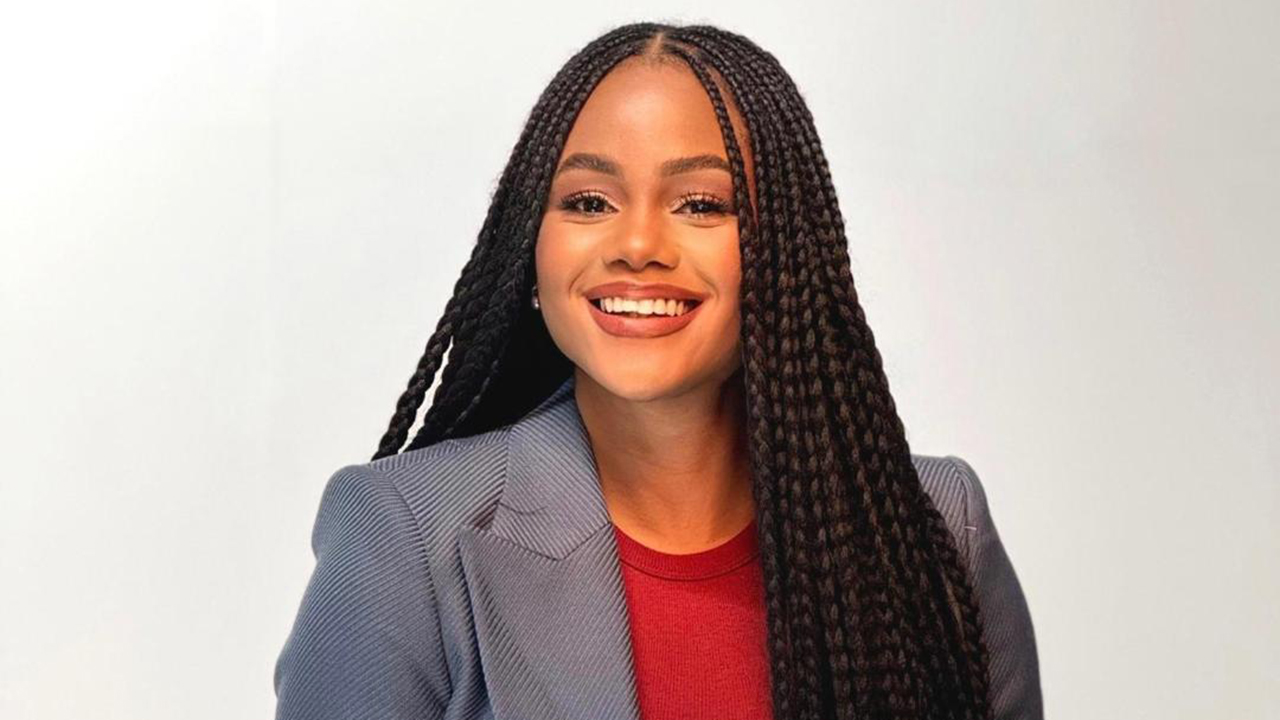
Every solution has a story, and Busola Dakolo tells them with authenticity, empathy, and purpose. As a former startup founder turned communications specialist, she brings a unique perspective to the art of storytelling, one shaped by her entrepreneurial journey and enriched by her academic background. She holds a master’s degree in International Business from Loughborough University, United Kingdom. Prior to which she graduated from the New York Film Academy with a diploma in photography. She holds a Bachelor’s degree in Geology and Mineral Sciences from the University of Ilorin. Equipped with a blend of creative and strategic skills, she established Skills Kitchen, a creative skills development platform that initially supported over 3,000 learners. Now, Head of Communications at Co-creation HUB, she amplifies the voices of innovators and changemakers driving progress across the continent. She shares more, in this interview.
Take us through growing up
I grew up in a family that valued education, curiosity, and resilience. My upbringing encouraged me to explore my interests and develop a strong work ethic. I studied Geology and Mineral Sciences, which later influenced my passion for storytelling and strategic communication. This foundation gave me the confidence and adaptability to embrace new opportunities and a strategic mindset to navigate different phases of my career.
[ad]
How’s your journey from start-up to becoming a communication specialist, what informed the switch?
My journey into communications wasn’t planned; it evolved naturally from my love for creative storytelling. I started with photography and capacity building, enjoying capturing moments and helping others refine their creative skills. This led me to create Skills Kitchen, a platform for young creatives to learn, grow, and find opportunities. Initially, I saw it as a space for skill development, but it became my first real exposure to the challenges entrepreneurs face beyond their craft. Interacting with diverse entrepreneurs sparked my curiosity about what makes a business sustainable, how brands position themselves, and why some ideas thrive while others struggle. This drove me to explore beyond visual production and branding, realising how storytelling shapes perceptions, attracts audiences, and drives impact. That realisation changed my career path. Many creative startups struggled not because their ideas lacked value but because they couldn’t communicate their vision effectively. I shifted to strategic communications to bridge the gap between innovation and visibility, ensuring great ideas reach the right people. Today, I lead communication strategies for startup ecosystem growth, helping founders and organisations not only build remarkable solutions but also tell their stories in ways that inspire, engage, and create lasting impact. Looking back, everything, from Skills Kitchen to my work with entrepreneurs, prepared me for this role, and I wouldn’t have it any other way.
What led to the pause of Skills Kitchen, and what lessons did you learn from the experience?
Skills Kitchen was a rewarding initiative, but as it grew, it became clear that for long-term sustainability, it needed a stronger operational structure and partnerships. Rather than let it run without a clear strategic plan, I decided to pause and rethink the model. One of the most valuable lessons I learned is that a great idea needs more than passion, it requires business acumen, scalability, and a sustainable funding model. This experience has shaped how I approach every project today, ensuring clarity of vision and execution.
What is Co-creation HUB (CcHUB), and what’s your role in the firm?
CcHUB is Africa’s leading creative and innovation ecosystem enabler, supporting startups that drive economic prosperity. As Head of Communications, I develop strategic narratives, amplify the work of startups, and ensure CcHUB’s impact is visible across Africa and beyond. I work closely with founders, stakeholders, and partners to showcase the incredible work being done in the African creative and tech ecosystem.
What lessons have you garnered throughout your career journey?
One thing I have come to realise over time is that learning never stops. The field of communications is constantly evolving; what worked yesterday might not work today. I have had to embrace adaptability, staying open to new ideas, tools, and strategies. It’s both exciting and humbling because, no matter how much you know, there’s always something new to discover. I’ve also come to value the impact of authentic storytelling. Connecting with people on a real level drives engagement, builds trust, and strengthens relationships. The right narrative can transform a brand’s impact, and witnessing that shift is always rewarding. Lastly, collaboration is essential. Success isn’t a solo journey. Some of my most fulfilling experiences have come from working with people who challenge perspectives, bring fresh ideas, and push boundaries. Every step in my journey reinforces the importance of continuous learning. My faith in God is the foundation of my resilience.
[ad]
How is being married to Timi Dakolo, and has it put more pressure on you?
Marriage is a partnership, and for me, it has been a journey of mutual respect and support. Being married to someone in the public eye comes with added visibility, but we navigate it while maintaining balance. Rather than seeing it as pressure, I focus on being authentic, grounded, and purposeful in both my personal and professional life. Our faith in God is a strong foundation for our marriage. Trusting in God’s plan helps us to find strength in prayer and scripture during difficult times, helping us to handle issues with the spirit of grace rather than frustration.
What shapes your decision-making and implementation process?
I trust my intuition, especially when something doesn’t feel right. If a decision doesn’t align with my values or long-term goals, I step back, reassess, and adjust as needed. Good decisions aren’t just about immediate outcomes but about creating lasting impact. I break down my approach into clear steps, tangible outcomes, and room for iteration. No plan is perfect, so, I remain open to feedback and refinement. Collaboration is also key. No one has all the answers, and diverse perspectives strengthen decision-making. Ultimately, I ensure my choices lead to positive, long-term results.
What leadership qualities distinguish you?
Leadership begins with self-leadership, constantly learning, evolving, and refining one’s approach. From there, it extends to guiding others through strategic thinking, empathy, and a commitment to execution. Empathy is fundamental. I strive to understand people, their motivations, struggles, and aspirations, and create an environment where they feel valued and empowered. At the same time, I maintain a long-term vision, ensuring today’s actions align with future success. I also believe in accountability- owning decisions, learning from mistakes, and staying committed to delivering results. Leadership is about making things happen and creating value wherever you are.
Nigerians have been advocating for a female president. If you were to become the president of Nigeria, what would you do differently?
Leadership, regardless of gender, is about service and vision. If I could lead, I would focus on strengthening key sectors such as education, creative economy, economic empowerment, and governance. Education is the foundation of national growth, and ensuring accessible, high-quality education would be a priority. I would also work on policies that create an enabling environment for businesses, particularly for women and young entrepreneurs. Additionally, I would advocate for stronger governance reforms that promote transparency, accountability, and public trust.
[ad]
What do you think is lacking in African startups?
African startups are full of innovation and resilience, but scalability remains a challenge. In 2024, investment in African startups dropped by 32 percent, from $2.8 billion in 2023 to just over $2 billion. This funding gap makes it difficult for startups to scale, expand market reach, and refine their products. Governments must foster a supportive environment for innovation through tax incentives, streamlined business registrations, and investor-friendly policies. Another critical gap is storytelling and strategic communication. Many startups struggle to articulate their value, making it harder to attract investors, customers, and partners. Research shows that brands excelling in storytelling see a 228 percent higher return on marketing investments, proving that how you present your story is just as important as the product itself.
What projects are you currently working on?
I’m relaunching Skills Kitchen with an expanded vision to support entrepreneurs beyond skill development by integrating mental health support. I’m also developing Hangout with Busola, a storytelling series that provides a platform for authentic conversations about resilience and personal growth. Meanwhile, my work at CcHUB remains a priority as we continue supporting African tech startups in refining their brand narratives and expanding their impact.
Which is more tasking—being a career woman or being a mother?
Both roles are significant and fulfilling in different ways. Being a mother requires nurturing and patience while being a career woman demands strategic thinking and execution. Rather than seeing them as competing responsibilities, I see them as complementary. One teaches me empathy and resilience, while the other sharpens my leadership and problem-solving skills. The key is intentionality, setting priorities, embracing flexibility, and giving myself grace in the process.
[ad]



